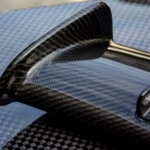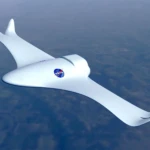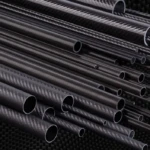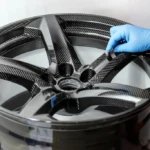The world of CNC Machining: A Comprehensive Guide to Advantages, Applications, and Best Practices
Computer Numerical Control (CNC) machining is a manufacturing process that uses computer-controlled machines to precisely generate complex parts and products. This technology has revolutionized the manufacturing industry, enabling the production of high-precision components with increased speed, efficiency, and accuracy. In this article, we will delve into the world of CNC machining, exploring its advantages, applications, and best practices to help you understand this rapidly evolving field.
What is CNC Machining?
CNC machining involves the use of computer-controlled machines, such as mills, lathes, and grinders, to manufacture parts and products. These machines are equipped with cutting tools and are programmed to follow a specific set of instructions, called a G-code, to perform a series of operations, including drilling, milling, turning, and grinding.
Advantages of CNC Machining
CNC machining offers numerous advantages, including:
Increased Precision and Accuracy
CNC machines are capable of achieving high levels of precision and accuracy, making them ideal for producing complex parts and components. The use of computer-controlled machines eliminates human error, ensuring that parts are manufactured to precise specifications.
Improved Efficiency
CNC machining significantly reduces the time it takes to produce parts, as the machine can perform multiple operations in a single setup. This increased efficiency leads to reduced production costs and shorter lead times.
Enhanced Flexibility
CNC machines can be programmed to perform a wide range of operations, making them highly versatile and adaptable to various manufacturing needs.
Reduced Labor Costs
CNC machining minimizes the need for manual labor, reducing labor costs and the risk of human error.
Applications of CNC Machining
CNC machining has a wide range of applications across various industries, including:
Aerospace and Defense
CNC machines are used to manufacture complex aircraft parts, such as engine components, gears, and bearings, as well as defense-related hardware, such as gun parts and precision instruments.
Automotive
CNC machining is used to produce car parts, such as engine components, suspension parts, and transmission components, requiring high precision and accuracy.
Medical
CNC machines are used to manufacture medical devices, including surgical instruments, implants, and prosthetics, which require exceptional precision and accuracy.
Energy and Industrial
CNC machining is used to produce equipment and components for the energy and industrial sectors, including power generation, transmission, and distribution.
Consumer Goods
CNC machines are used to manufacture consumer goods, such as jewelry, watches, and precision instruments, requiring high precision and attention to detail.
Best Practices for CNC Machining
To ensure optimal results and minimize potential issues, it’s essential to follow best practices when working with CNC machines. Some of the most important best practices include:
Proper Tool Selection
Selecting the right tools for the job is crucial for achieving precise results. Consider the material being machined, the operation being performed, and the required accuracy.
Accurate Part Programming
Proper part programming is critical to ensure that the machine performs the intended operations accurately and efficiently. Use CAD software or CAM software to create G-code programs that accurately reflect the part design.
Regular Machine Maintenance
Regular maintenance is essential to ensure the machine is functioning at optimal levels. Perform daily, weekly, and monthly maintenance tasks to keep the machine running smoothly.
Quality Control
Implement a quality control process to inspect parts and verify conformance to specifications. This ensures that parts meet the required standards and are free from defects.
Continuous Improvement
Encourage a culture of continuous improvement by regularly reviewing and optimizing processes, procedures, and machine operations.
In conclusion, CNC machining is a rapidly evolving and highly versatile manufacturing technology that offers numerous advantages, including increased precision, improved efficiency, and reduced labor costs. By understanding the various applications of CNC machining and following best practices, manufacturers can maximize the benefits of this technology and produce high-quality products that meet the demands of the global market. As the demand for precision and accuracy continues to grow, it is essential to stay up-to-date with the latest developments in CNC machining and to continually improve processes to ensure success in this competitive global market.
Daguang focuses on providing solutions such as precision CNC machining services (3-axis, 4-axis, 5-axis machining), CNC milling, 3D printing and rapid prototyping services.

















